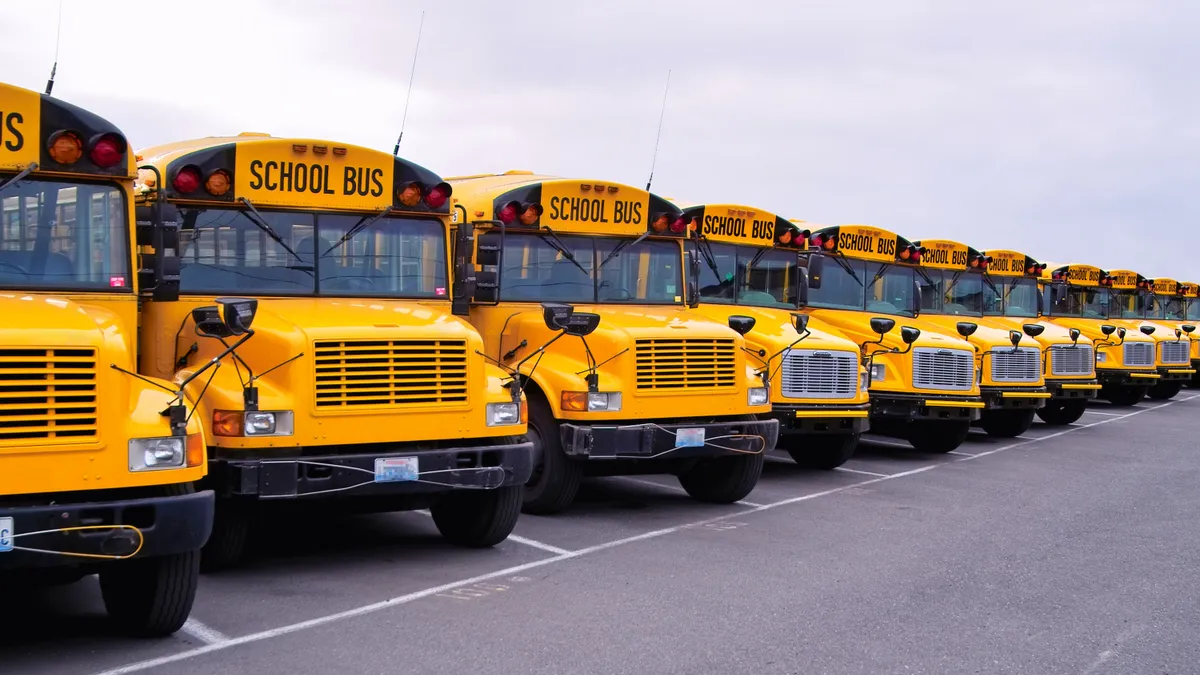Dive Brief:
- School leaders are still facing transportation challenges in their schools and districts, with 80% citing bus driver shortages and 73% saying budget issues are impacting transportation operations, according to a pair of surveys conducted by the Associated Press and the University of Chicago’s NORC Center for Public Affairs Research.
- Just over a quarter (26%) said their school or district addressed bus driver shortages by cutting or shortening bus routes, and most (83%) said educators have had to excuse themselves from their core responsibilities to address transportation needs.
- Students and families are feeling the blowback, with 26% of parents saying in their survey students are missing out on extracurricular activities and 21% said students are missing school services such as meals and facing tardiness and absenteeism. Almost half of parents surveyed (44%) said their children have been late to school at least a few times because of transportation issues, and 11% of parents reported having lost a job due to needing to take their children to and from school or other activities, per the report.
Dive Insight:
Of administrators who said bus driver shortages are a problem, almost half (46%) said it's a major problem, according to the 2025 State of School Transportation report released by HopSkipDrive, a company that provides supplemental school transportation services. HopSkipDrive released the report in partnership with AP-NORC Center for Public Affairs Research. The two surveys’ samples included over 500 school administrators and more than 830 parents.
“School administrators are sounding the alarm: transportation challenges are no longer just logistical — they’re educational,” said Joanna McFarland, CEO and co-founder of HopSkipDrive. "When teachers are pulled from classrooms to support operations and students miss out on learning opportunities, the ripple effects are profound."
Shortages are particularly impacting mothers and families who already have fewer resources, said Jennifer Benz, deputy director of The AP-NORC Center, in a statement.
“Transportation issues are impacting families in deeply personal ways — from missed work and lost jobs to children missing out on meals, counseling, and extracurriculars,” said Benz. “The data show that when transportation breaks down, it’s not just a scheduling problem — it’s a barrier to opportunity."
School administrators have opted to address these issues through centralizing pick-up locations and adding supplemental transportation services, among other things. According to the surveys, most school administrators favor:
- Centralized pick-up and drop-off spots for students using school buses.
- Improving pedestrian and bicycle infrastructure around schools.
- Allowing school districts to use school-arranged supplemental transportation services.
About 4 in 10 parents agree the last two — improving infrastructure and adding transportation services — would make getting to school easier for their family.













